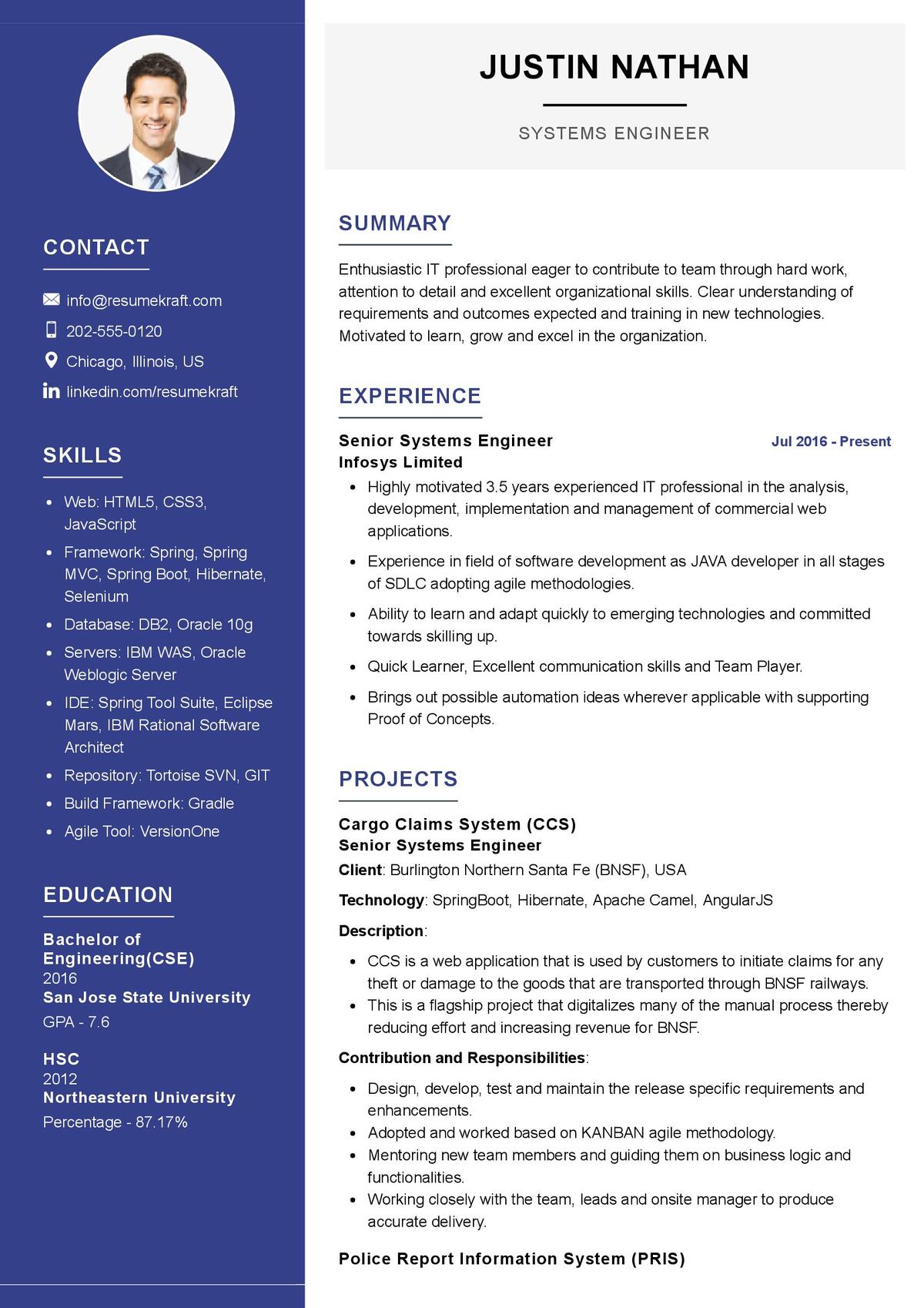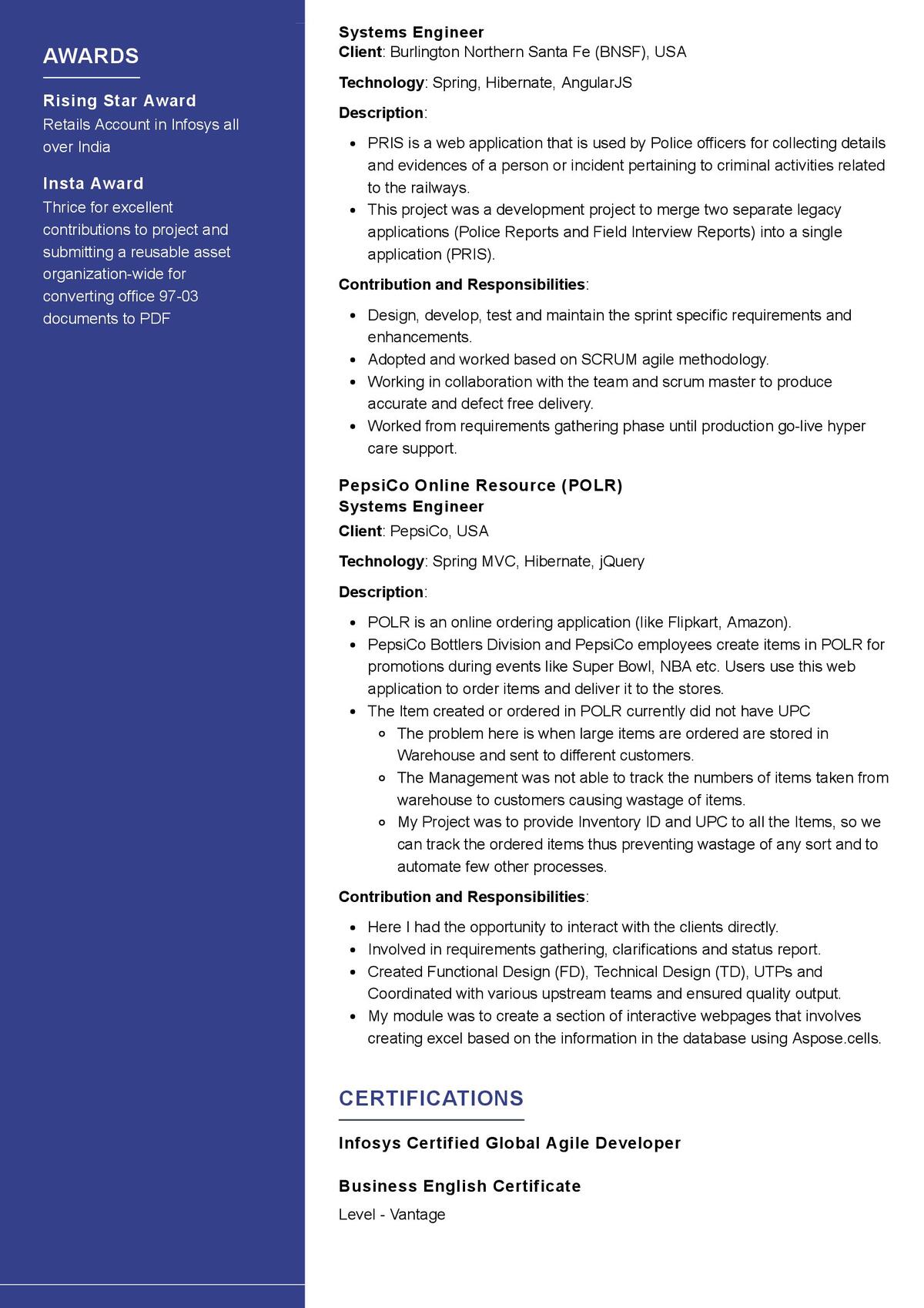What Should Be Included In A Systems Engineer Resume?
A Systems Engineer resume should showcase a candidate’s technical skills, abilities, and accomplishments. It should also reflect their experience in designing, developing and deploying systems that meet business objectives. The ideal candidate for this position will have a strong technical and problem-solving skills, as well as the capacity to lead complex projects from start to finish.
When crafting a Systems Engineer resume, the most important thing to include is relevant experience. A prospective employer needs to know that the candidate can handle the complexities of the job. As such, it’s important to highlight any experience working with IT systems and technologies. Listing specific systems that were worked on, as well as accomplishments such as successfully implementing new systems, is always beneficial.
It’s also important to include other relevant skills and qualifications. This includes proficiency in coding and programming, as well as expertise in network security, system architecture, and system integration. Any certifications the candidate has achieved should also be included, as this shows the employer that they have the necessary qualifications for the job.
Finally, it’s important to showcase any leadership and management skills the candidate may possess. A Systems Engineer is often responsible for managing projects, teams, and budgets, so it’s important to demonstrate the ability to lead effectively. Examples of successfully managed projects or teams should be highlighted, as well as any experience leading or developing new systems or technologies.
What Skills Should I Put On My Resume For Systems Engineer?
When it comes to writing a resume as a systems engineer, it is important to highlight the skills that will make you stand out among other applicants. Systems engineering requires a unique mix of technical, analytical, and problem-solving skills, and you may want to include all of them on your resume. This can help to show potential employers that you are fully equipped to work in this field.
The most important skills to include on a systems engineer resume are experience with programming languages such as C++, Java, and Python, as well as experience with software development and engineering tools such as MATLAB, LabView, and SysML. Additionally, it is beneficial to have experience with hardware and networking systems, such as routers and switches.
Other important skills to include are experience with project management and process improvement initiatives. Additionally, you should highlight any experience you have with risk management, compliance, and security. It is also important to demonstrate your ability to work independently and as part of a team, as well as any experience you have in leading teams.
Finally, you should include any certifications you have in relevant fields, such as a Certified Systems Engineer (CSE) certification. This will show potential employers that you have the knowledge and expertise to excel in this role. By making sure to include all of these skills on your resume, you can show employers that you are the best candidate for the job.
What Is The Job Description Of The Systems Engineer?
A Systems Engineer is responsible for the design, development and implementation of complex computer and communication systems. They are also responsible for the maintenance, testing, and upgrades of existing systems as required. Systems Engineers must have strong knowledge of hardware, software, network and operating systems and be able to troubleshoot and fix any issues that arise. Additionally, they must have excellent communication, analytical and problem-solving skills.
The job description of the Systems Engineer can vary depending on the organization, but typically includes analyzing and designing systems, planning, modeling and coordinating system modifications, troubleshooting, and upgrading systems. As part of their duties, Systems Engineers must ensure systems are secure, reliable, and efficient. They also need to be able to design and implement cost-effective solutions, maintain networks, and troubleshoot system issues.
Systems Engineers must be able to communicate effectively with both technical and non-technical stakeholders and be able to effectively manage projects. They must also have the ability to develop and document processes and procedures. Additionally, they must possess the ability to work independently and as part of a team.
Systems Engineers must have strong analytical skills and be able to understand the bigger picture and think strategically. They must also possess strong problem-solving skills in order to troubleshoot and identify issues quickly. Additionally, they must be knowledgeable about the latest industry trends and technologies, in order to determine the best solutions for their organization.
What Is A Good Objective For A Systems Engineer Resume?
When writing a systems engineer resume, it is important to include a strong objective that clearly states your qualifications and career goals. A good objective will help you stand out from other applicants and give employers a better understanding of why you are applying for the job. It is important to keep your objective concise yet comprehensive, as it can be a key factor in the success of your resume.
When writing an objective for a systems engineer resume, you should include the following components:
- A statement of your desired position
- A list of your qualifications relevant to the position
- A brief description of your professional experience
- An explanation of why you would be a great fit for the job
- A mention of any certifications, specializations, or skills you possess that are relevant to the job
- An explanation of how you will contribute to the team and organization
When crafting your objective, make sure to use powerful, action-oriented language that reflects your enthusiasm and commitment to the position. Your aim should be to create an objective that immediately grabs the attention of employers and shows that you are the ideal candidate for the job.
Including a well-crafted objective is a great way to make a positive impression and encourage employers to read further into your resume. By taking the time to clearly articulate your qualifications and goals in your objective, you can ensure that your resume will stand out from the competition.
What Are The Career Prospects In The Systems Engineer?
As a Systems Engineer, you can have a rewarding career that offers job security and the potential for high salaries. While the job outlook for Systems Engineers is strong, there are several factors that should be considered when looking for employment in the field.
The most important aspect of a Systems Engineer is the ability to design and maintain complex computer systems. Additionally, Systems Engineers must be able to troubleshoot technical problems and provide technical expertise to clients. A successful Systems Engineer must also be knowledgeable in programming, networking, and security.
In addition to technical expertise, Systems Engineers must also possess solid communication skills. This is important because Systems Engineers must be able to communicate effectively with clients, partners, and other stakeholders. It is also important to be able to manage projects and effectively coordinate people and resources.
The career prospects of a Systems Engineer are bright. As demand for technology grows, companies will need knowledgeable and experienced Systems Engineers to help them develop and maintain their systems. In addition, Systems Engineers can often find employment with government agencies, universities, research labs, and other organizations.
Finally, Systems Engineers should always strive to stay on top of the latest trends in the field. This includes staying up to date with new technologies, protocols, and frameworks. Additionally, Systems Engineers should be proactive in learning new skills and developing the skills they already possess. By doing so, Systems Engineers can remain competitive in the job market and open up more career opportunities.
Key Takeaways for an Systems Engineer resume
When writing a Systems Engineer resume, there are some key takeaways to keep in mind. The most important aspect of any resume is to make sure that it is tailored to the position you are applying for. It is essential to highlight not only the technical skills, but also the soft skills that can help you stand out from the competition.
When creating a resume for a Systems Engineer role, you should include a summary of your educational background and relevant certifications that demonstrate your qualifications for the position. It is also important to include details about your past employment and any relevant projects or accomplishments. Additionally, make sure to include a list of technical skills that you possess and any software applications you are proficient in.
When detailing your experience, make sure to include specific accomplishments that demonstrate your abilities. For example, if you have experience in system design, you should highlight how you designed and implemented a system that met specific goals or objectives. This will help demonstrate the value you can bring to the role. Furthermore, you should also reference any awards or accolades you have received for your work in the past.
Finally, you should also make sure to include any relevant hobbies or interests. This can help give the hiring manager a better understanding of who you are outside of your professional life. Additionally, listing any additional certifications or training you have received can also help to give your resume an edge.
By following these key takeaways, you can create a strong and effective Systems Engineer resume that will help you stand out from the competition.



